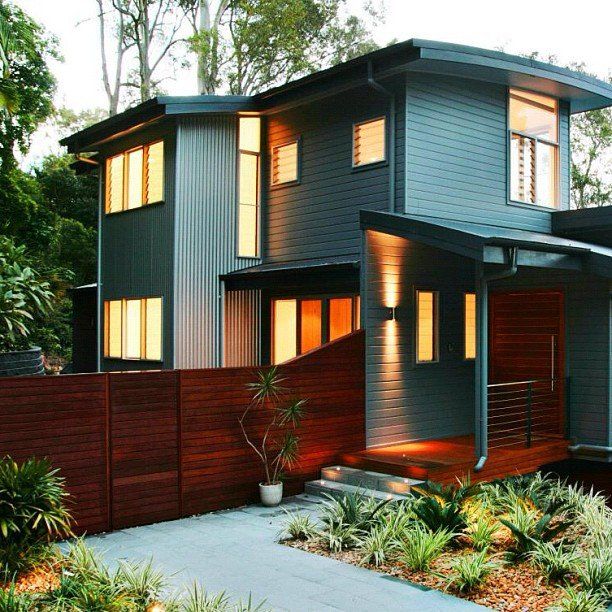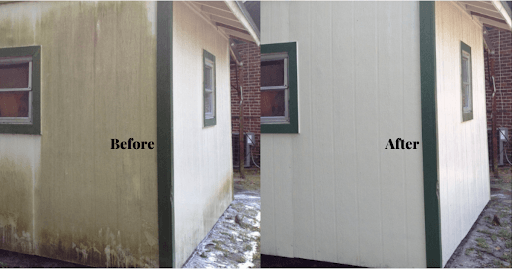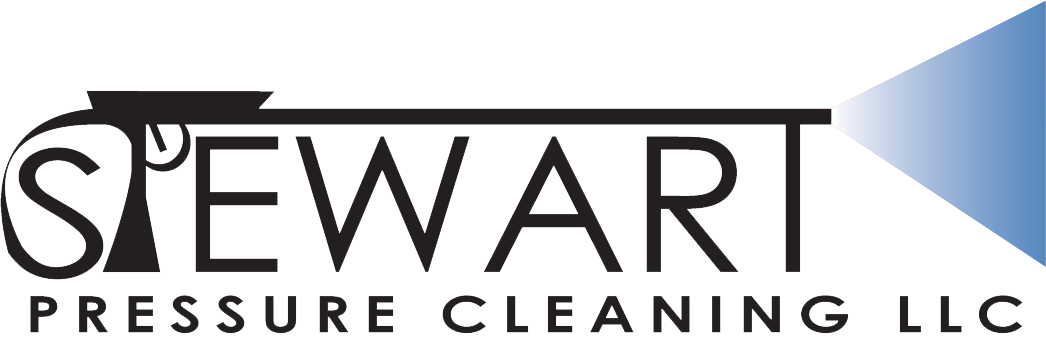IMPORTANCE OF LOW PRESSURE CLEANING
In Florida, with our high levels of moisture, it is imperative that we pressure wash the exterior surfaces of our homes, roofs, sheds, decks, and driveways to avoid buildup of algae and mold. The problems many homeowners face is knowing who to call and what processes are best.
While looking for easy ways to clean the exterior of homes, you will find there are many options for cleaning, and it can get confusing. Unfortunately, though, many of these can actually cause serious damage to your home. Power washing, pressure washing, and pressure cleaning are all the same thing and are the best ways to clean your home. But there are two main types – high pressure cleaning and low pressure cleaning. While the natural instinct may be to use high pressure to clean more deeply, it can also cause extreme damage to sensitive areas such as roofs, coquina siding, brick, windows, and even stucco.

Low-Pressure Cleaning vs High-Pressure Cleaning
Low-pressure cleaning is the best to use for the exteriors of homes and always for roofs. Combined with the proper chemicals, low pressure does an exceptional job of removing dirt, algae, and mildew from siding and painted surfaces, including easements, brick, vinyl siding, coquina siding, stucco, window seals, and roofs. This is especially true when you have your home cleaned at least once a year and avoid buildup of dirt and grime. To achieve low-pressure washing, professionals use a low setting on their power washing machines and custom soft washing cleaning solution.
Because high-pressure cleaning can easily cause damage-sensitive areas, it should be limited to tougher surfaces, such as concrete driveways and sidewalks. The deep cracks in sidewalks collect a great deal of dirt and oil that are best removed using high-pressure cleaning.
We Use Professional Pressure Cleaning Machines
As you may have guessed, there are major differences between the type of pressure washing machines most homeowners get versus the ones professionals use. Our pressure cleaners are used for both low-pressure cleaning and high-pressure cleaning. Our low pressure is typically run at 150 psi, similar to that of a water hose, but with a volume of closer to 9.5 gallons per minute. By comparison, if we use our machines for high-pressure washing, we could literally strip the paint off metal (easy to see why high-pressure cleaning in the wrong hands can be quite damaging!), which is why we are very selective about when and how they are used. Even if you use a rental machine, it could easily cause damage to your delicate areas, especially siding and roofs. This is why recommend hiring a professional who knows what settings and chemicals to use with each surface and situation.
Low Pressure for your Roof
Asphalt shingles are one of the most delicate building materials negatively impacted by high-pressure cleaning as the limestone in the shingles can easily get knocked loose from the pressure. Low-pressure roof cleaning with the appropriate soft washing chemicals avoids this damage, and is generally recommended by most shingle manufacturers.
Low Pressure for your Home
Low pressure cleaning is the most effective and efficient way to remove dirt, algae, and mildew from your home. Using this process, we safely clean all outside home surfaces, including brick, stucco, coquina, vinyl, wood, and more.
Save the high pressure washing for your concrete driveway and sidewalks! (And, note, driveways are included in our home cleaning services!) Call 904-379-3830 for an estimate or to schedule an appointment today.


